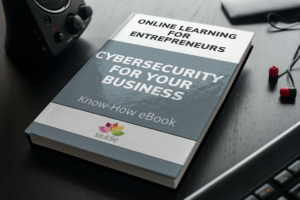When you create an account on any website, you need to create a password to gain access. Unfortunately, most people use the same password for every website they log in to - which is acceptable as long as you use a secure method to create the password.
It's important to choose a unique, secure password because it's the only way to prevent someone from accessing your online information, such as your bank account, credit card accounts and other sensitive data. If your password is stolen or compromised, the thief can use it to steal your identity, damage your bank account and cause you all sorts of problems.
To avoid this, you should create a "strong password", i.e. a password that nobody can guess. Your first name, date of birth, national insurance number or similar are weak passwords that people choose because they are easy to remember. That's why they're so easy to guess! Worse still, people who randomly hack into computer systems to steal the credentials of people they don't know are a constant threat.
Identity theft is on the rise and you don't want to make it too easy for thieves to gain access to sensitive information that they can use against you. To create a secure password for your online use, you need to follow a few simple principles.
The first rule is to use a password that is at least eight characters long. The longer the password, the less likely it is that a thief will be able to crack it. Most websites require passwords to have at least 6 characters consisting of letters, numbers or a combination of both. However, you should use at least 8 characters in your password because each additional character makes it much more difficult to crack.
Another important aspect of creating a secure password is that it contains both letters and numbers. It is much more secure if the website or software you are using allows symbols in your password. Also use different characters. Use an equal number of letters and numbers and not just seven characters and one number. If you use only letters or only numbers in your password, make it longer so that it is harder to decipher.
The best passwords are those that do not contain words from the dictionary, but random letters and numbers. Punctuation marks and other symbols help to make your password more secure. So don't be afraid to use them.
Repeated characters, such as 1111, or consecutive characters, such as ABCD, should never be used. This makes the password weak and vulnerable to hacker attacks.
And finally, don't set a password with your login name or part of your real name. Criminals will be after your name, date of birth, children's names and other sensitive information first. So choose a password that has nothing to do with you.
Make sure that you write down your password and keep it in a safe place so that you do not forget it.

